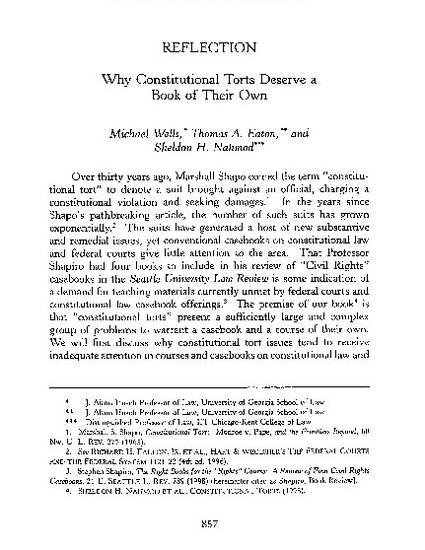
Over thirty years ago, Marshall Shapo coined the term "constitutional tort" to denote a suit brought against an official, charging a constitutional violation and seeking damages. In the years since Shapo's pathbreaking article, the number of such suits has grown exponentially. The suits have generated a host of new substantive and remedial issues, yet conventional casebooks on constitutional law and federal courts give little attention to the area. That Professor Shapiro had four books to include in his review of "Civil Rights" casebooks in the Seattle University Law Review is some indication of a demand for teaching materials currently unmet by federal courts and constitutional law casebook offerings. The premise of our book is that "constitutional torts" present a sufficiently large and complex group of problems to warrant a casebook and a course of their own. We will first discuss why constitutional tort issues tend to receive inadequate attention in courses and casebooks on constitutional law and other civil rights topics. Then we will explain the pedagogic advantages of having a separate offering on constitutional torts.
Available at: http://works.bepress.com/michael_wells1/67/
